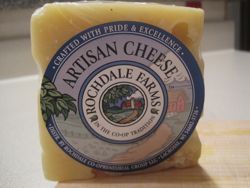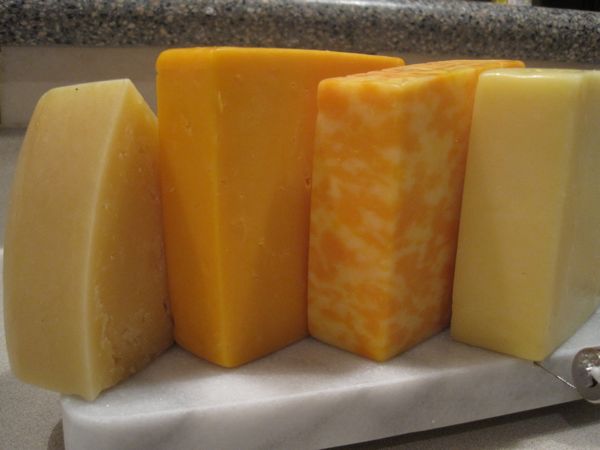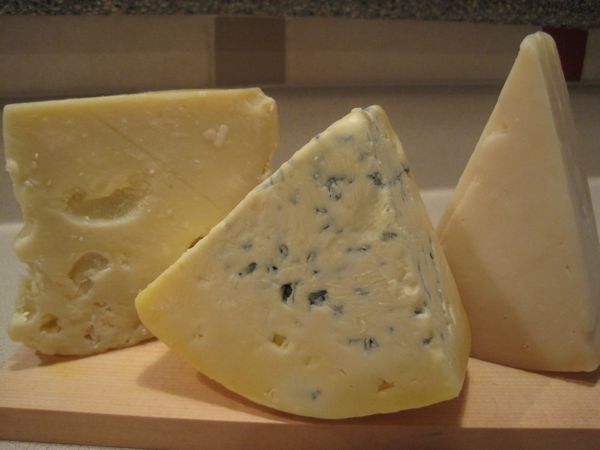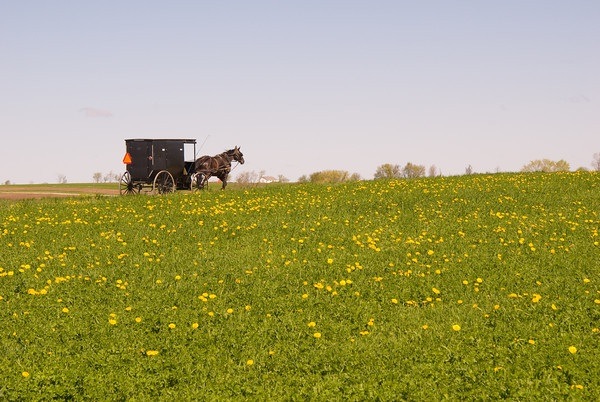
Though I’m an unflagging supporter of foodstuffs generated from my home state (Wisconsin) and my current home (Minnesota), I have to admit that when it comes to cheese, I frequently stray from local varieties. It’s not that I don’t appreciate the blood, sweat, and tears that local cheesemakers put into their products — I do, and I enjoy eating them — but rather that I hate to limit myself when there’s a wide world of ooey, gooey, decadent cheeses out there. I’m a sucker for the French triple-cream Chaource, the Italian goat cheese Brunet, and Spain’s raw-milk Manchego, among many, and I don’t make any apologies for my tastes. Why should I? There’s a reason why these cheeses are shipped all over the world. They’re damn tasty, and I’m not the only one who thinks so.
But I never turn down the opportunity to try emerging cheeses, especially local discoveries, so when the offer to sample the new line of Rochdale Farms cheeses came into Heavy Table, I was happy to take up my cheese knives for a round of taste testing. Created by K&K Creamery in Cashton, WI, from the milk of more than 325 Amish farms in Wisconsin and Minnesota, the cheeses, along with hand-rolled butter, recently made their debut at local co-ops. While some are merely good, organic alternatives to basic commodity cheese, a few others could go head-to-head with similar European versions. Which ones are worth your money and tastebuds?

Organic Mild Cheddar ($8.59 / lb.)
A mild cheddar doesn’t need much description beyond its name — this is your run-of-the-mill cheddar, very mild and milky. Its core “cheddar-ness” makes it a good choice for sandwiches or macaroni and cheese. Way better than the plastic-wrapped slices, this cheese would make any parent feel better for giving into his or her kids’ demands for yet another grilled cheese sandwich.
Organic Medium Cheddar ($8.79 / lb.)
Though it has a bit more tang than the mild cheddar, the medium variety is still fairly tame. If you’re looking for a step up from commodity cheddar but don’t want to break the bank on expensive clothbound versions, this cheese would fit the bill nicely.
Organic Colby-Jack ($8.79 / lb.)
The Colby-Jack begs for a football game. It’s easy to picture it sliced on a tray along with a selection of deli meats or piled high on a turkey sandwich. Its salty bite may turn off the sodium-averse, but for those of us who crave that salty flavor, this cheese can be immensely satisfying.
Artisan Aged Goat Cheese ($13.99 / lb.)
One bite of the aged goat cheese will bring your tastebuds across the ocean to Europe, where top-notch goat cheeses can be found in France, Spain, and Italy. Easy to pair with a big glass of red wine or a bunch of grapes, the goat cheese is zesty and salty without being too “goaty” (a common complaint among goat-cheese detractors). Master cheesemaker Tom Torkelson, who is based at K&K Creamery, explains why:
“We use our milk almost every single day to make goat cheeses, and it makes a huge difference. We have our milk delivered a lot of mornings, and by that afternoon, that’s last night’s milk and this morning’s milk, we’ll have that made into cheese. After that goat milk sits for three or four days, that lipase flavor comes out in that milk a little bit more, and you get that more intense goat flavor. Some of our goat cheeses — there’s times when I’m: ‘Is this really goat cheese?’ It’s so non-traditional goat-tasting.”

Cellar Aged Gouda ($15.99 / lb.)
Goudas are generally known as crowd-pleasers, and this version doesn’t disappoint, though it’s not quite as smooth as Prima Donna Gouda or other Dutch favorites. Aged for two years, the Gouda calls out for fruit — juicy apples and pears — to be munched in alternating bites. Granted, Gouda is delicious in cooked dishes, but it’s also the quintessential table cheese, so don’t bother doing any more to this cheese than slicing and enjoying.
Alpine Reserve ($18.99 / lb.)
Of all the Rochdale Farms cheese, the Alpine Reserve stood out as the weakest. It wasn’t bad by any means, but it had a grittiness that its floral flavor couldn’t mask. Aged for three years, this cheese is described as similar to Emmenthaler or Comté but doesn’t live up to the strengths of its European counterparts.
Cave Aged Blue ($15.99 / lb.)
Yum. That’s the best way to describe the cave aged blue, found exclusively at local co-ops. Very creamy and sweet, this cheese would be all you need for a dessert course, along with some honey (local, of course) and toasted baguette slices. The blue taste isn’t too strong for beginners but pleasing enough for aficionados, so it’s an excellent choice if you have all kinds of cheese lovers at your table.

While cut-to-order cheeses from specialty shops are the de rigueur choice for cheese lovers, Rochdale Farms offers some intriguing options for people looking to avoid yet another stop on their dinner party shopping trips. Think blue or goat and you can’t go wrong. The other cheeses may not be substitutes for your (or my) favorite international varieties but are a solid choice if you’re looking to keep your menu local.
Rochdale Farms cheeses can be found at The Wedge, Seward Co-op Grocery and Deli, Linden Hills Co-op, Just Food Co-op, Mississippi Market, Lakewinds Natural Foods, Valley Natural Foods, Eastside Food Co-op, and other co-ops throughout the Upper Midwest.

Love locally grown cheese… Cheese curds have been a long time family favorite of ours, wish I had a good recipe for fried cheese curds (had some VERY yummy ones in Wisconsin, but not in Merrill where the bf usually lives). But NO goat cheese. Bleccch! Horrible stuff…tastes just like barn stink! I dont care how fashionable it is…its GROSS!